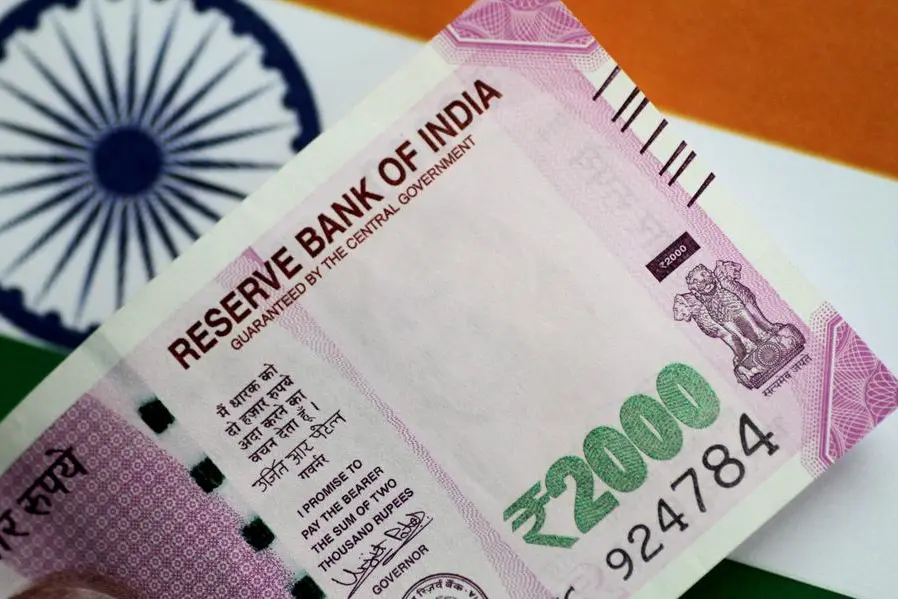PHOTO
MUMBAI - The Reserve Bank of India's likely absence in the forward market in the wake of the rupee's decline past 82 per dollar has halted the uptrend in forward premiums, analysts said on Friday.
The 1-year USD/INR forward implied yield declined to 2.22% on Friday, adding to the 10 basis points fall in the previous session.
The fall in the premiums, which are a function of the interest rate differentials between the United States and India, has come despite a decline in Treasury yields following the Federal Reserve policy outcome.
The run up in USD/INR spot is pushing premiums lower, analysts said. The turmoil in the shares of Adani Group has driven USD/INR spot to 82.25, its highest level in over three weeks.
The higher rate makes it less likely that RBI will buy dollars in the spot and that would mean the central bank won't intervene in forwards, said a swap trader at a private bank, who did not wish to be identified. Premiums at current levels are inclined to be sensitive to USD/INR, the trader added.
In a bid to rebuild foreign exchange reserves, the RBI has been buying dollars in the spot and conducting sell/buy swaps in forwards to reduce the impact of the intervention on rupee liquidity.
"When the RBI is accumulating reserves, they will try to neutralize the impact of cash liquidity. That would cause forward premiums to rise more," said Ashish Parthasarthy, treasurer at HDFC Bank.
But now that the USD/INR is above 82, the RBI is unlikely to intervene, which is what forwards are pricing in, the private bank trader said.
Increased hedging by exporters looking to take advantage of the local unit's weakening past 82 is further contributing to the fall in premiums, according to analysts.
At this spot level, the RBI is unlikely to do sell/buy swaps, Anindya Banerjee, head of research for forex and interest rates at Kotak Securities said.
Banerjee noted that the current forward premium level is in the "ballpark" with the interest rate differential between the 1-year Treasury and India yield at 2.28%.
(Reporting by Nimesh Vora and Anushka Trivedi; Editing by Dhanya Ann Thoppil)





















